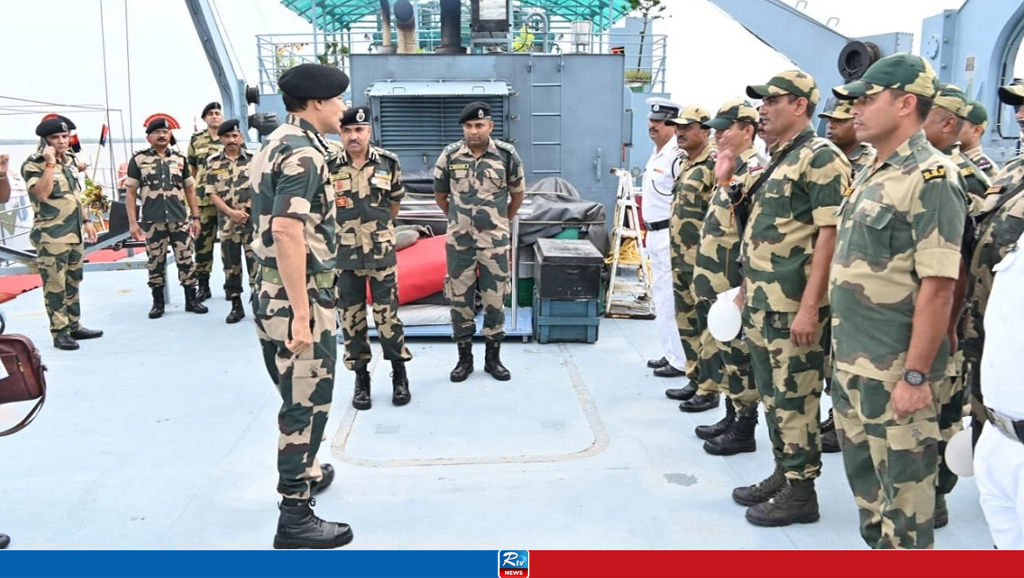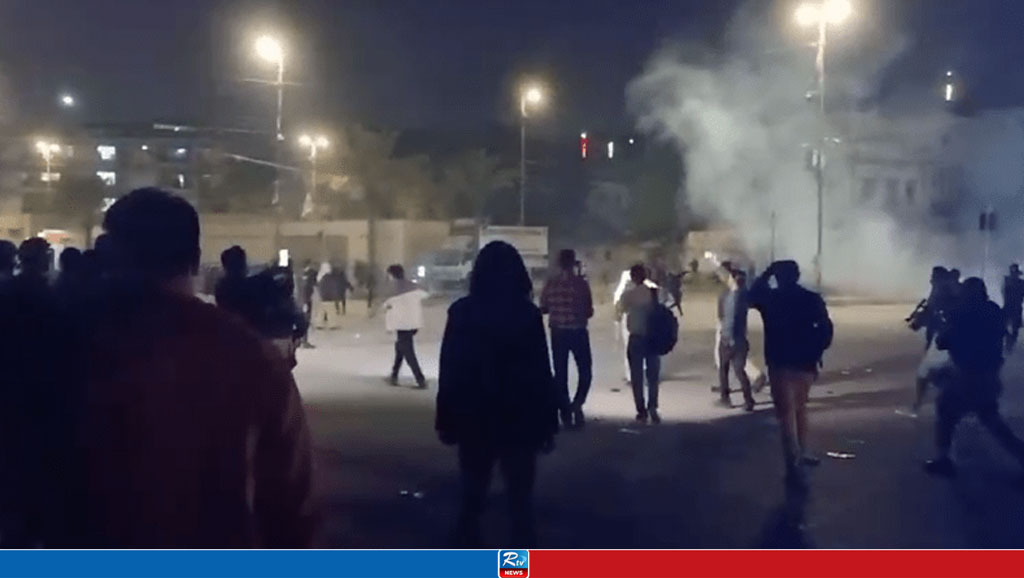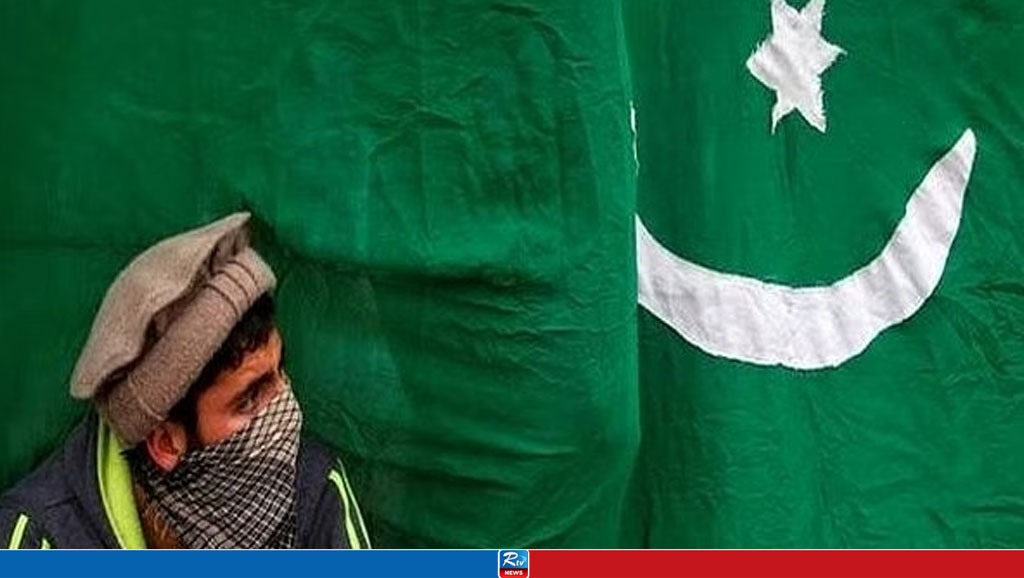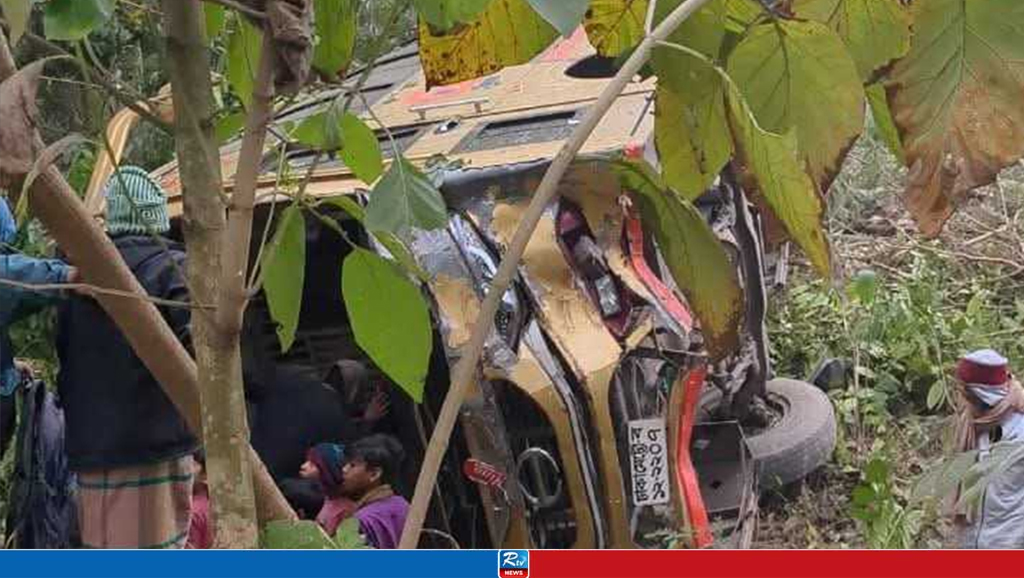Police officials meet Dr Kamal

Several top police officials on Wednesday met Jatiya Oikyafront leader and also Gono Forum president Dr Kamal Hossain at his Motijheel chamber in the city to discuss security issues.
Deputy Commissioner of Motijheel Zone Anwar Hossain told media that they went to Kamal’s office around 12:10pm and stayed there for over an hour.
“During the time, we have discussed security measures taken for him and it was the part of our normal duty,” DC Anwar said.
When asked whether Dr Kamal is sensing any insecurity, the police official said he (Kamal) told us nothing in this regard.
MHK
Comments
Bottled Soybean Oil Back to Market After Price Hike
"For the past few days, shopkeepers kept saying the same thing—bottled soybean oil has been unavailable. However, if it was found in rare places, it was claimed a high price. However, today (December 10), I see a completely different scenario in the market. Every shop has plenty of oil. That means whatever happened till now was nothing but a scheme by the syndicate to hold people hostage," said Mansura Hossain, a private-sector employee while shopping for daily essentials in Karwan Bazar.
Expressing her frustration, Mansura said, "Prices of essential commodities are often raised under the pretext of shortages, causing hardships for ordinary people like us. We are forced to buy at higher prices."
Al-Amin, a CNG driver, said, "Yesterday morning I returned empty-handed because there was no 1-liter bottled soybean oil. But today, bottled soybean oil is available everywhere. Does this make any sense? Are they free to do whatever they want without any accountability?"
The CNG driver further alleged, "If there was a shortage, then where did all this oil suddenly come from? Or are the traders orchestrating this to hike the prices? The government should investigate the real reason behind this."
On Tuesday morning (December 10), a visit to the capital's Karwan Bazar area revealed shelves overflowing with bottled soybean oil. However, as the new price-adjusted oil had not yet arrived, consumers were still able to buy at the previous rates.
Speaking to several retailers, the reporter stated that after the announcement of the price hike, dealers increased the supply of oil in the market. However, oil at the new price has not yet been supplied in the market. As a result, consumers are buying 1-liter bottled soybean oil for 167 BDT and a 5-liter bottle for 818 BDT.
Retailers also mentioned that from Wednesday (December 11), the new oil will arrive in the market and will be sold at 175 BDT per liter.
Earlier, on Monday (December 9), Trade Advisor Sheikh Bashir Uddin announced an increase in the price of both bottled and loose soybean oil per liter an 8 BDT.
He said the price of bottled soybean oil has been set at 175 BDT per liter, while loose soybean oil is priced at 157 BDT per liter.
Citing the increase in prices on the international market, the advisor added, "The primary reason for the price hike is the supply shortage of edible oil globally."
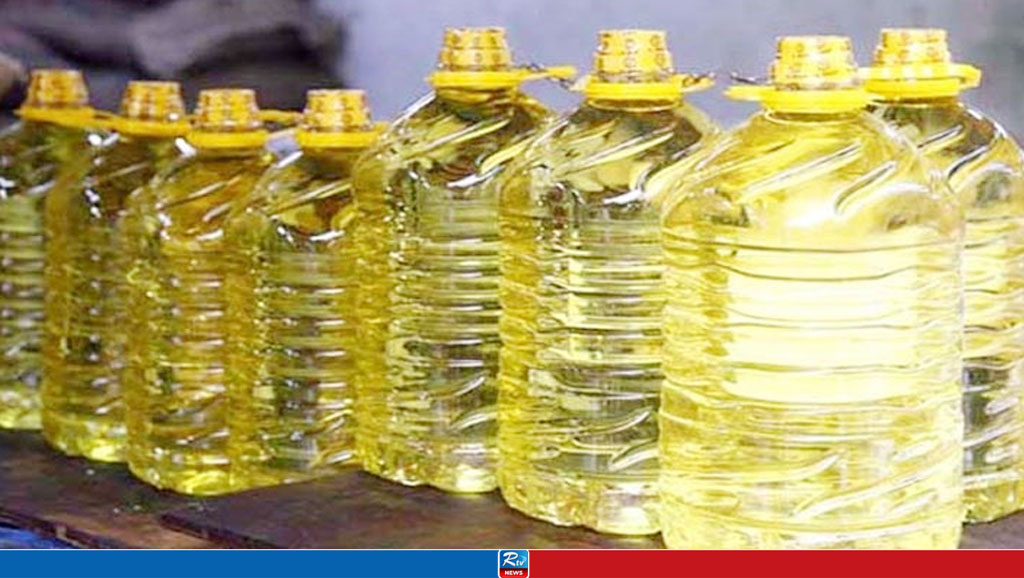
Fake Freedom Fighters To be Punished: Faruk E Azam
Being listed as a freedom fighter without actually being one is a serious offense. An opportunity will be given to such fake freedom fighters to withdraw their names. If they fail to do so and the court confirms the falsification, their certificates will not only be canceled, but the government will also take legal action against them.
Being listed as a freedom fighter without actually being one is a serious offense. An opportunity will be given to such fake freedom fighters to withdraw their names. If they fail to do so and the court confirms the falsification, their certificates will not only be canceled, but the government will also take legal action against them.
This statement was made by Faruk E Azam, Advisor to the Ministry of Liberation War Affairs.
On Wednesday (December 11), during a press conference at the Ministry of Liberation War Affairs, Faruk E Azam issued this stern warning to fake freedom fighters.
In response to a question, Advisor Faruk E Azam said, "In my view, fake freedom fighters have deceived the nation. This is not a minor offense but a serious crime. We might offer indemnity (general amnesty). Those who have falsely claimed to be freedom fighters can voluntarily withdraw their names. If they do so, they might receive general amnesty. However, if that does not happen, as we have said, they will be accused of this fraud."
Referring to numerous complaints regarding the list of freedom fighters, the advisor stated, "We have 3-4 lists in our possession. There are various types of lists – blue lists, red lists, and even Indian lists. Several types of freedom fighter lists exist here. Many individuals have been listed as freedom fighters despite not being one. Some have been gazetted and are enjoying benefits. When the court determines the falsification, we will cancel their certificates and ensure they are punished appropriately so that they face the necessary consequences."
Emphasizing the importance of punishment, Advisor Faruk E Azam said, "If we can establish a clear verification process, the same measures will be applied to all. They deserve punishment, and exemplary penalties should be imposed. We hope to implement effective measures regarding this matter very soon."
He further stressed that the dignity of genuine freedom fighters must not be compromised. The government aims to complete this work without undermining their honor. Acknowledging the difficulty of the task, Faruk E Azam mentioned that the advisors are putting in their best efforts. He added, "In many cases, people have been listed as freedom fighters out of favoritism, familial connections, or other influences. Identifying these individuals will take some time, but success is expected in this regard."
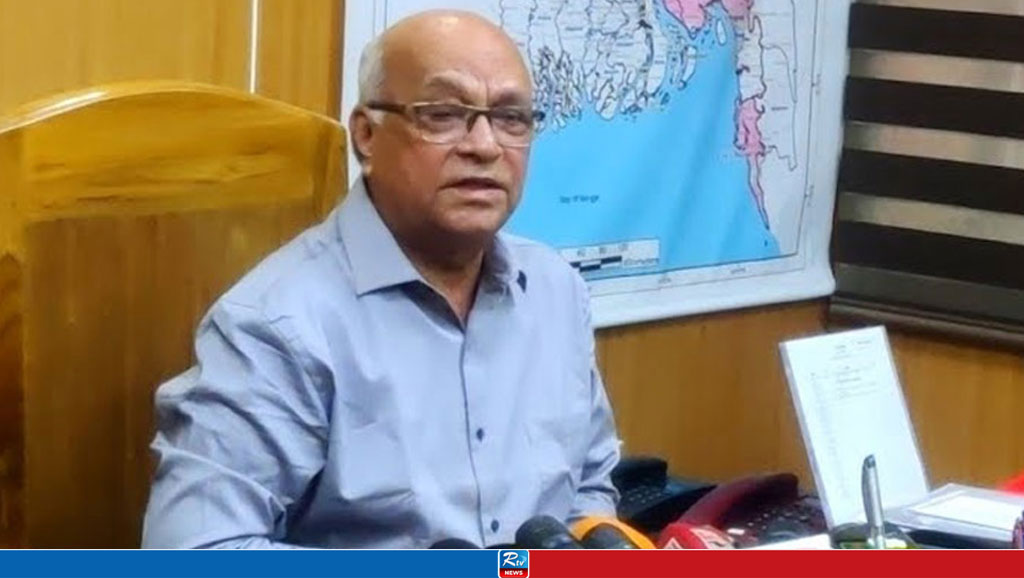
Panchagarh Shivers as Temperature Drops to 9°C
The northern district of Panchagarh is shivering at the lowest temperature. The dense fog combined with biting cold has left the entire region in distress. With the intense chill and freezing winds, the temperature has dropped to 9°C.
On Friday (13 December) at 6:00 am, the temperature at the Tetulia Weather Observation Center in the district was recorded at 9°C. Previously, on Thursday at 9:00 am, the temperature in this district was recorded at 12.6°C.
The Meteorological Department states that when the temperature ranges between 8.1 and 10°C, it is classified as a mild cold wave. According to this definition, a mild cold wave is currently sweeping over Panchagarh.
Jitendra Nath, the in-charge of the Tetulia Weather Observatory, said, "The temperature has dropped to 9°C. At 6:00 am today, it was recorded at 9°C. This is classified as a mild cold wave. Although the sun was visible through the fog in the morning, the northern region continues to shiver under the cold wave accompanied by chilly winds."

Vegetable Prices Begin to Drop
Vegetable prices in the capital markets have started to drop. Traders say the markets are now filled with winter vegetables, bringing some relief in prices. While some vegetables are still being sold at Tk80 to 150 per kg, most are now priced between Tk50 and 60. Although winter vegetables are expected to be more cheaper during this season, the low market prices of vegetables are offering some respite.
A visit to several markets in Kawran Bazar, Agargaon, Shyamoli, and Kallyanpur on Friday (December 13) revealed this scenario.
Traders noted that within a few days, more winter vegetables would arrive in the markets, likely reducing prices further.
In Kawran Bazar, new potatoes are selling at Tk100 per kg, tomatoes at Tk120, green chilies at Tk100, hyacinth beans with seeds at Tk100, bitter gourds at Tk100, cucumbers at Tk80, carrots at Tk80, radishes at Tk30, and spring onions at Tk80 per kg.
Other vegetables include string beans at Tk100 per kg, round eggplants at Tk80, long eggplants at Tk60, medium-sized cauliflowers at Tk50 per piece, cabbages at Tk50 per piece, papayas at Tk50 per kg, lady's finger at Tk80, pumpkins at Tk40 per kg, regular hyacinth beans at Tk50, turnips at Tk50, and onion flowers at Tk30 per bundle.
According to vegetable vendor Zakir, prices have not decreased as much as expected. "In previous years, vegetable prices used to drop to Tk30 to 40 per kg, but this year they haven't. However, prices are lower than before," he said.
Shahin, a shopper from Farmgate, remarked "Tomatoes are still around Tk150 per kg. Cucumbers and carrots are also expensive. Where is the price reduction?"
Homemaker Fatema Akter commented, "While some vegetables are cheaper, many are still overpriced. Only if vegetables were priced at Tk30 to 40 per kg could we truly say prices have dropped."
Meanwhile, in Kawran Bazar's wholesale market, local onions are selling for Tk70 to 120 per kg, and Indian onions for Tk70 to 80. Pabna's local onions are being sold for Tk120 per kg. Additionally, Chinese ginger is priced at Tk160, Chinese garlic at Tk210 to 220, fresh ginger at Tk100 to 110, and garlic from Natore at Tk230 to 240 per kg. An analysis of the market over the past few months shows a slight decrease in wholesale ginger prices, while garlic prices remain mostly unchanged.
In terms of meat, beef is selling at Tk750 per kg, and goat meat at Tk1,100 per kg. Farm chickens are being sold at Tk180, Pakistani chickens at Tk310 taka, and local chickens at Tk520 per kg.
Chicken vendor Kalam noted that poultry prices have risen slightly, selling for Tk190 per kg, an increase of Tk10 in just two days. Meat prices in other markets are almost the same. Eggs are being sold at Tk145 to 150 per dozen.
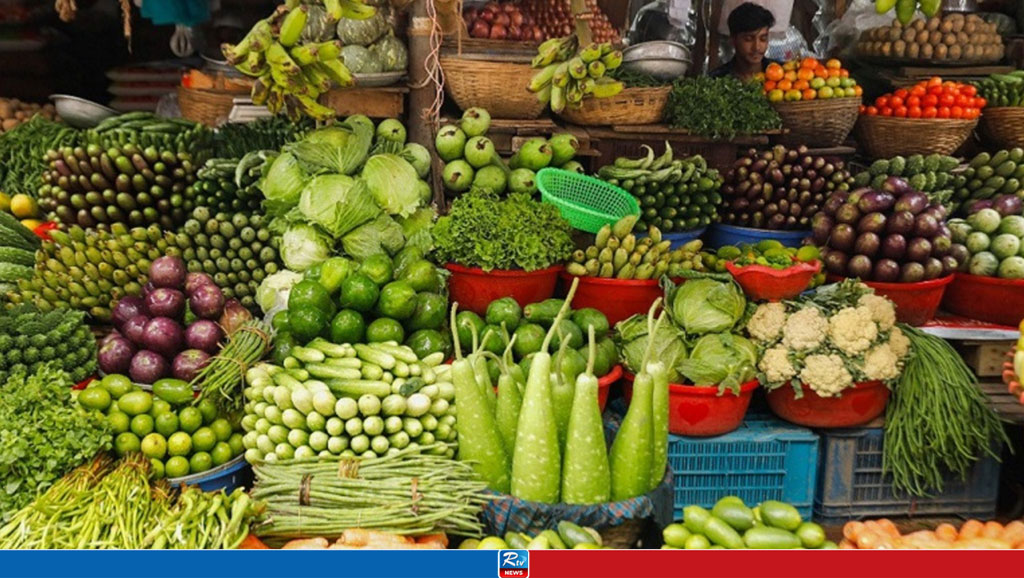
468 Tons of Potatoes Imported from India through Benapole
A shipment of 468 metric tons of potatoes has been imported from India.
The consignment arrived at the Benapole Landport Railway Station in Jessore on a freight train on Thursday evening (December 12).
The shipment is scheduled to be unloaded on Saturday (December 14).
Nazmul Arefin Jony, a representative of C&F agent Alam & Sons at the land port, said necessary documents will be submitted to Benapole Customs House on Saturday for customs clearance.
After completing customs and railway station procedures, the shipment will be unloaded either at the Benapole port or Noapara. From Noapara, the potatoes will be distributed to various parts of the country, including Dhaka and Chattogram.
Benapole station master Saiduzzaman informed the media that the potatoes were imported by Tata Traders, an importing firm based in Chapainawabganj, Rajshahi. The consignment was exported by Atif Export, an exporter from Malda, India. A total of 9,460 bags of potatoes, weighing 468,000 kilograms were imported on a single train. The import value of the shipment is USD 1,007,640.
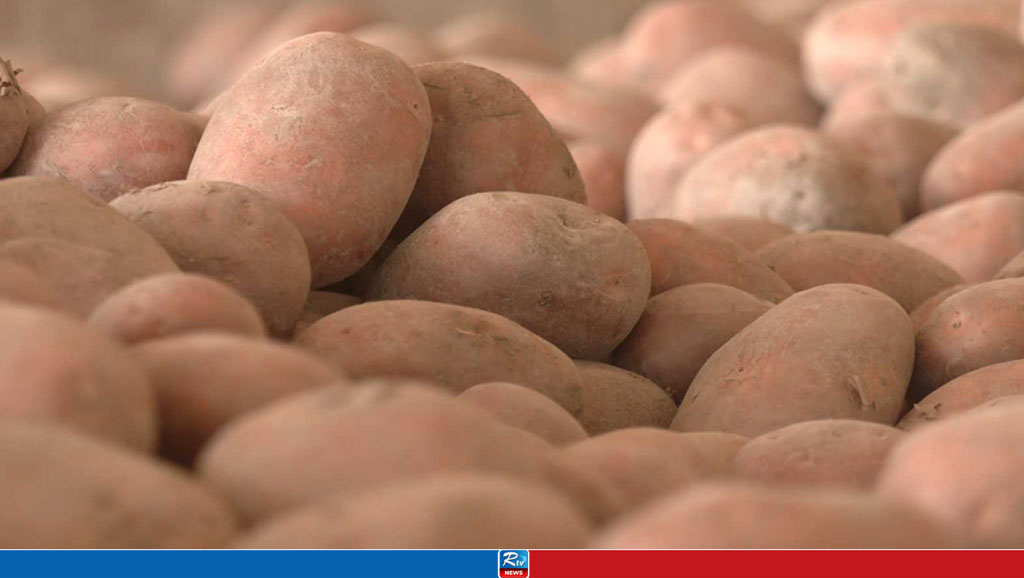
Poet Helal Hafiz Passes Away
Helal Hafiz, a Poet of love and rebellion, passed away on Friday (December 13) afternoon.
He was taken to Bangabandhu Sheikh Mujib Medical University (BSMMU) Hospital where doctors declared him dead. He was 76 years old. The news of his death was confirmed by Udichi's Konkan Nag Kabir.
BSMMU authorities stated that around 2:30 pm on Friday, Helal Hafiz fell in the bathroom of Super Home in Shahbagh, Dhaka, causing bleeding. He was rushed to BSMMU Hospital, where doctors declared him dead.
It has been reported that Helal Hafiz had been suffering from glaucoma for a long time along with kidney complications, diabetes, and neurological disorders.
Helal Hafiz was born on October 7, 1948 in Netrokona. His first poetry collection: Je Jole Agun Jole (The Water That Burns), was published in 1986. The book has been printed over 33 times to date. In addition to his writing, Helal Hafiz worked as a journalist for a long time with various newspapers, including Daily Jugantor. After the publication of his first poetry collection in 1986, he rose to the pinnacle of popularity.
During the anti-authoritarian movement in the country, the lines from Helal Hafiz's poem Nishiddho Sampadokiyo (Banned Editorial) — "Ekhon Joubon Jar, Michhiley Jabar Tar Shreshtho Shomoy" (Now is the prime time for those in their youth to join the procession) — became rallying cries, slogans, and cherished words among poetry lovers.
In 2013, he received the Bangla Academy Award. Before that, he was honored with the Khalekdad Chowdhury Award and several other recognitions.
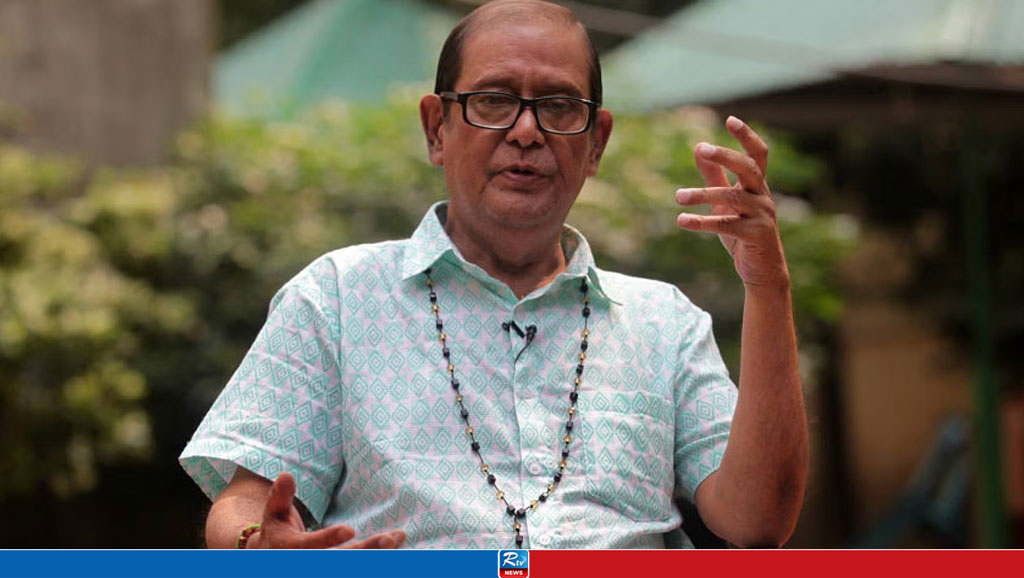
Oil to Flow Dhaka via Pipeline, Saving Tk 2.36 Billion
The construction of a 250-kilometer pipeline has already been completed. If all goes as planned, fuel oil will start flowing from Chattogram to Dhaka through this pipeline by March next year. This will result in savings of approximately Tk 2.36 billion, marking a significant milestone in Bangladesh's energy transportation system.
According to officials from the Bangladesh Petroleum Corporation (BPC), the implementation of this project will not only reduce fuel transportation costs but also ensure an uninterrupted supply chain. Moreover, it will contribute to reducing environmental pollution.
Currently, fuel oil is transported from Chattogram to Dhaka via river and road. However, this process often faces disruptions for various reasons. Additionally, the cost of transportation through rivers and roads is high, and there are frequent allegations of oil theft. During the dry season, reduced navigability in waterways further complicates transportation.
To address these challenges, a project titled "Transportation of Fuel Oil through Pipeline from Chattogram to Dhaka" was approved in October 2018. However, construction work started in 2020. Initially, the project was scheduled to be completed by December 2022, but the deadline was extended twice with the latest deadline set for December this year.
The project's initial cost was estimated at Tk 28.61 billion, but it was later revised to Tk 36.99 billion. It is being implemented by the 24 Engineer Construction Brigade of the Bangladesh Army.
According to BPC sources, the annual demand for fuel oil in Bangladesh is about 6.5 million tons. In the 2023–24 fiscal year, 6.7 million tons were supplied with diesel accounting for 75% of the total demand.
BPC also mentioned that 40% of the country's total fuel demand is consumed in the Dhaka division. Currently, oil is transported to Dhaka by first shipping it from Patenga in Chattogram to depots in Narayanganj's Godnail and Fatullah via waterways and then by road to Dhaka. Around 150 small and large vessels are used for this transportation every month, costing Tk 2 billion annually.
Once the pipeline becomes operational, the project is expected to generate an annual revenue of Tk 3.26 billion, while expenses for operations, maintenance, fuel, electricity, and land lease will amount to Tk 900 million. This will lead to annual savings of Tk 2.36 billion.
Projections suggest that the project's investment will be recovered within 16 years.
Regarding the project's progress, Md. Aminul Haque, the project director appointed by BPC, said that construction work will be fully completed by December. After commissioning trials, the pipeline will be ready for full-scale fuel transportation.
When asked about the commissioning timeline, Anupam Barua, BPC's Director of Operations and Maintenance stated that commissioning is expected to begin in January, followed by staff recruitment and training. Full-scale fuel transportation is scheduled to start in March.
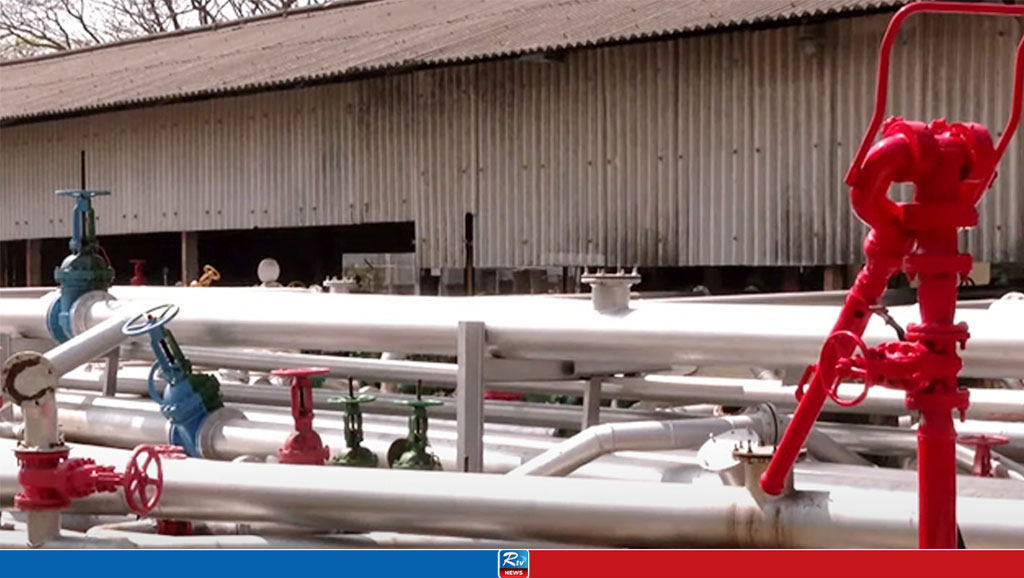
Read More

 Live Tv
Live Tv

